On February 17th, the 77th Academic Frontier Lecture on Public Management was successfully held, hosted by the School of Public Policy of Management (SPPM), Tsinghua University and organized by the Institute for Sustainable Development Goals of Tsinghua University (TUSDG).
Professor Danyang Xie, Chair Professor of the Thrust of Innovation, Policy, and Entrepreneurship, the Society Hub, HKUST (Guangzhou) presented a lecture about MLAB Models: Leveraging Multiple Large Language Models for Economic and Public Policy Analysis. Lecture was moderated by Professor Zhu Xufeng, Dean of SPPM, Executive Director of TUSDG. Ma Xiangyu, Deputy Director and Secretary-General, Professional Committee on Sustainable Development Management of Chinese Management Science Society, SPPM’s teachers Chen Ling, Zhu Junming, Gao Yuning, Zhong Wei, Dai Yixin, Zhang Penglong, Wei Wenchi, Gao Yuchen, Wang Yingying, Hong Kong University of Science and Technology (HKUST) Phd student Hao Yuzhi, as well as more than 70 teachers and students from and outside of the school attended the lecture.
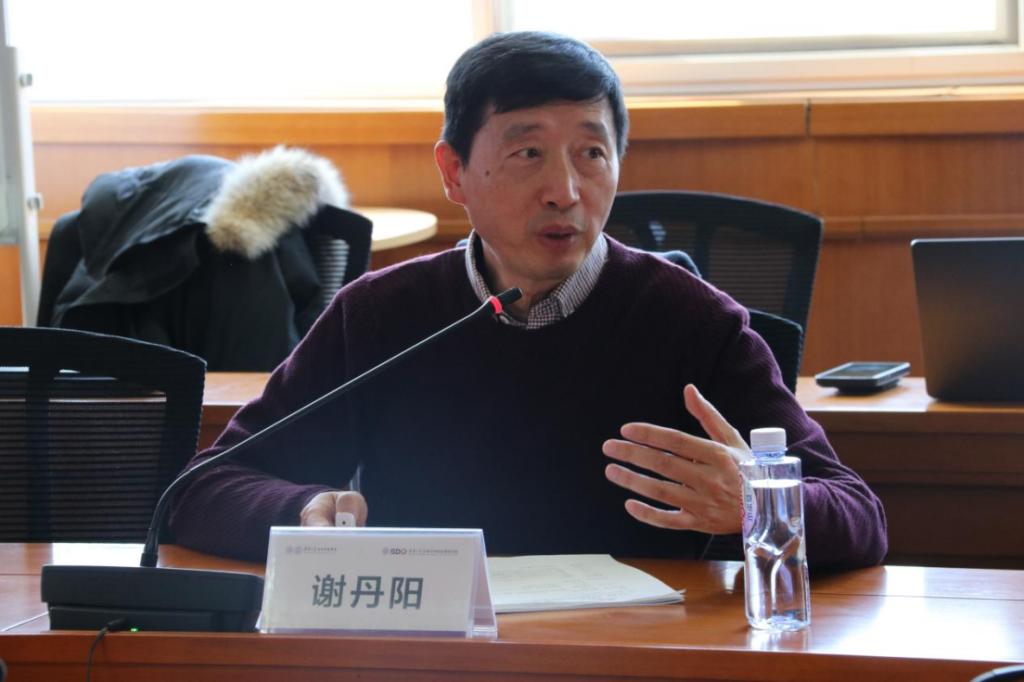
Xie Danyang presented a keynote lecture
Xie Danyang pointed out that traditional economic models have limitations in coping with individual behavioral heterogeneity and policy simulation flexibility, while MLAB models are able to simulate the economic decisions of different income groups more flexibly by combining with multiple language models (LLMs). The lecture analytically evaluates the effectiveness of LLMs in simulating individual consumption and saving behaviors, and finds that LLMs exhibit economic behavioral characteristics that approximate those of humans, such as consumption smoothing, intertemporal substitution and precautionary saving. Taking the simulation of interest income tax policy as an example, the MLAB model shows the adaptability of individuals under different tax rates. Professor Xie believes that the MLAB model has broad application potential in the areas of tax policy evaluation, pension system reform and universal basic income (UBI), and is currently exploring how to optimize the dynamic interaction mechanism of the model to further enhance its applicability in public policy analysis. In the future, the MLAB model is expected to be applied to a wider range of policy research scenarios after more rigorous and targeted calibration, providing new methodological support for economic modeling and smarter aids for policy formulation.
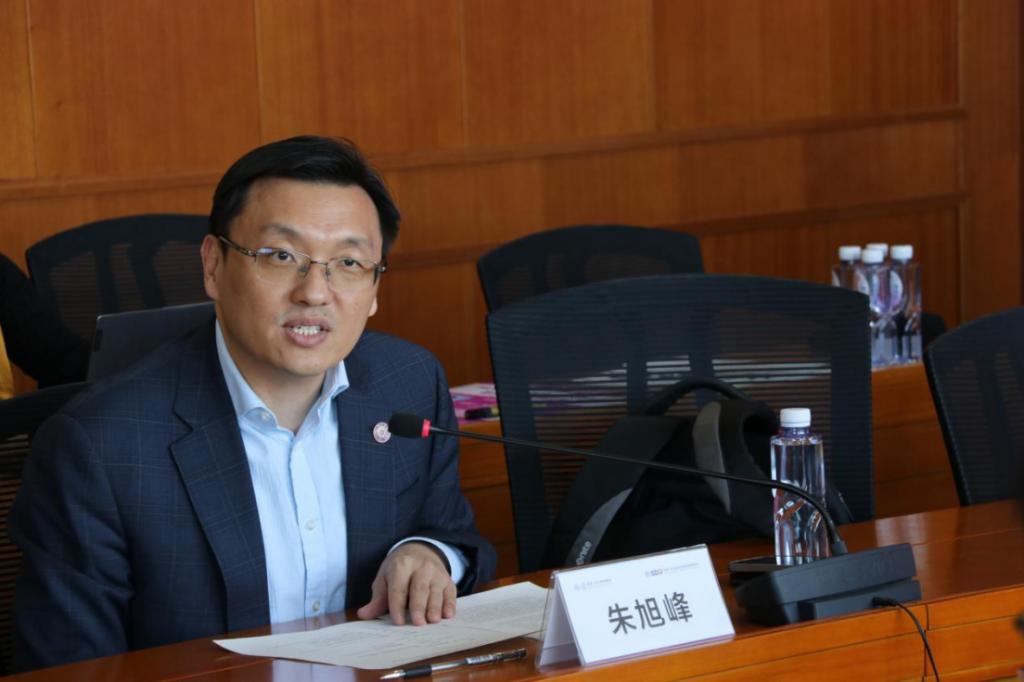
Zhu Xufeng moderated the lecture
During the Q&A session, Professors Zhu Xufeng and Chen Ling, Associate Professors Zhu Junming, Gao Yuning, Zhong Wei, and Dai Yixin of SPPM, as well as PhD student Hao Yuzhi of HKUST and students from SPPM had an in-depth discussion on the real-world applicability of the MLAB model, research paths and methodology. Participating faculty and students explored how to make the setup of a LLMs more relevant to real-life situations, and discussed whether MLAB represents a new research paradigm and its potential to complement existing research and studies. The discussion also touches on the methodological framework of the MLAB model and where it fits into micro and macro research. For example, in conjunction with micro-level social network analysis, how to ensure that the model is sound in terms of reliability and validity, and whether its simulation results can truly reflect the real economic and policy environment. Through this interactive exchange, the academic value and practical potential of the MLAB model have been further collided and expanded, and new inspirations for future research have been provided.
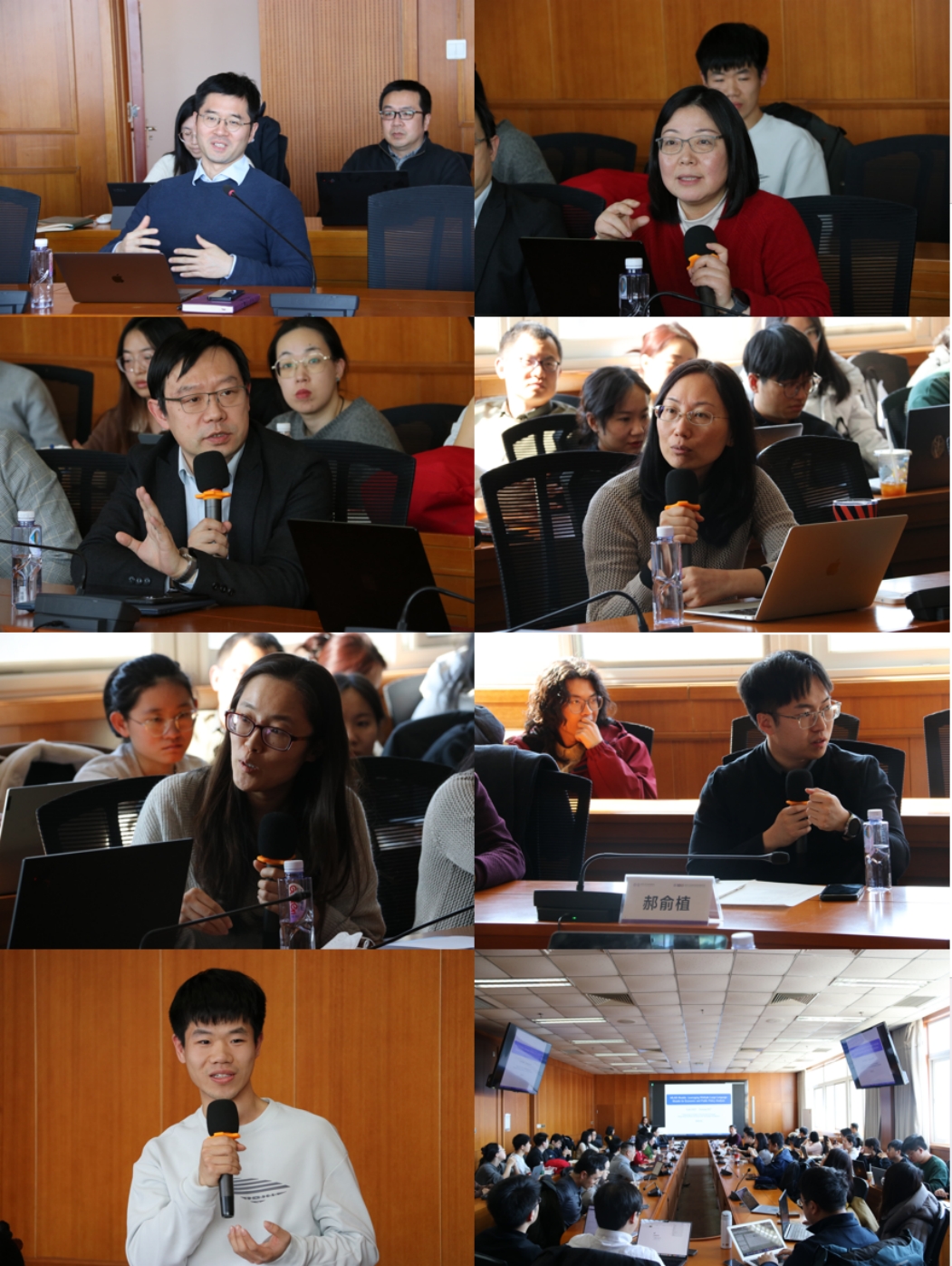
Questions and exchanges among participating students and faculty
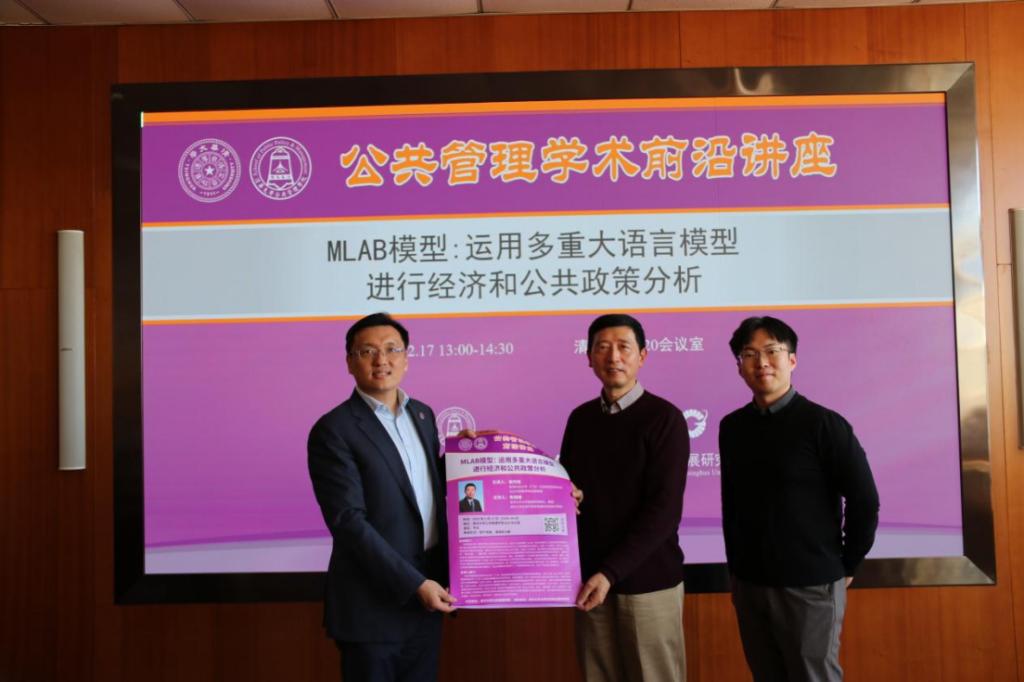
Group photo of Zhu Xufeng (left) , Xie Danyang (center) and Hao Yuzhi (right)
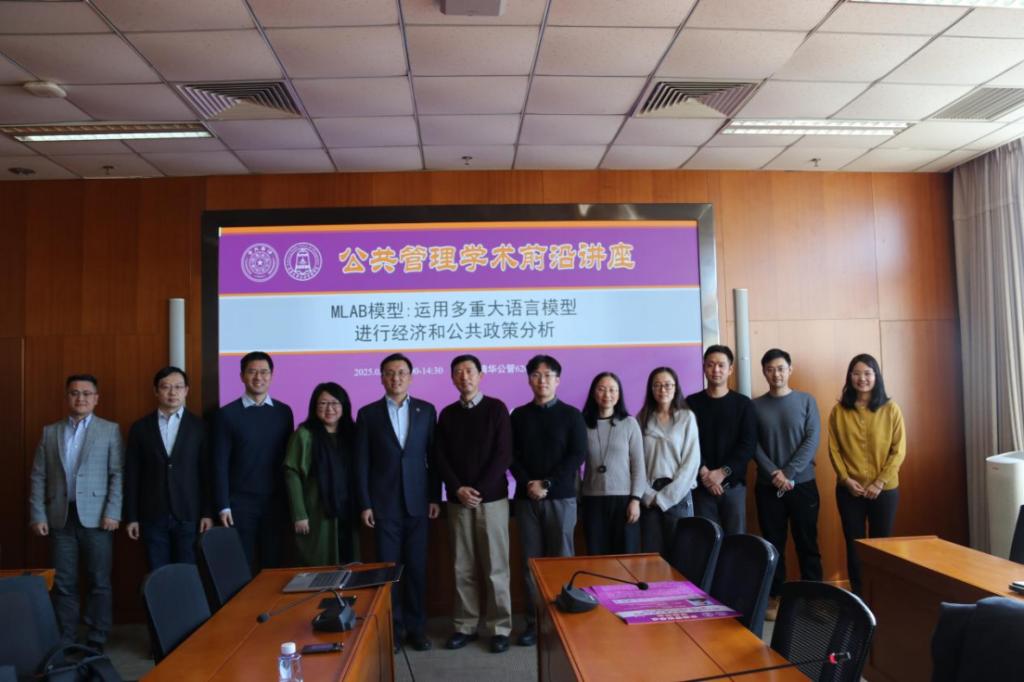
Group photo of participating guests
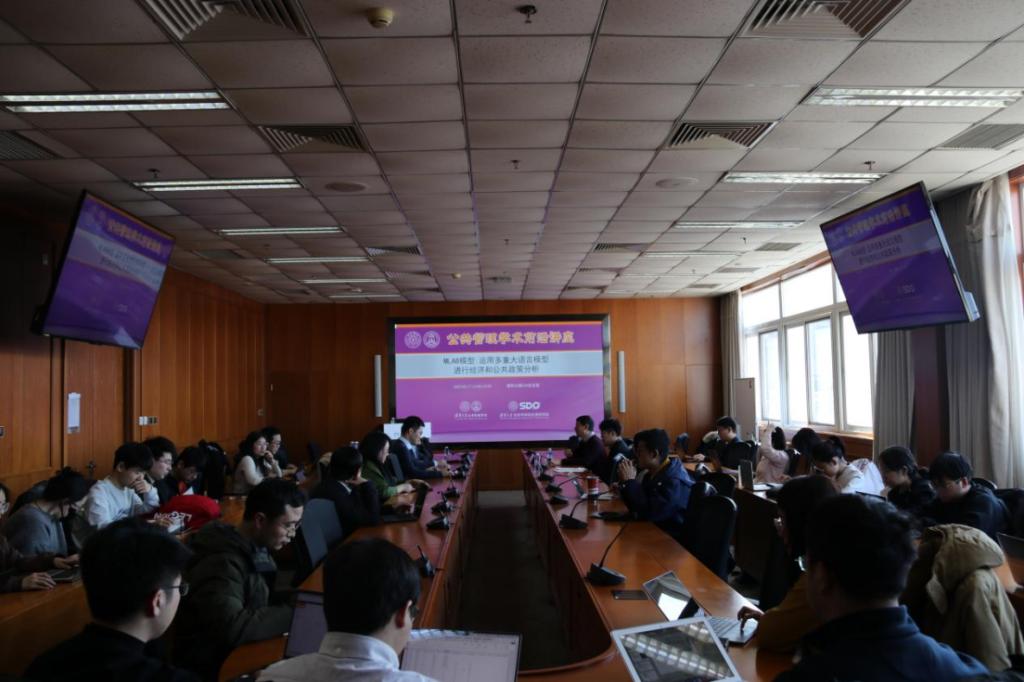
Lecture scene

